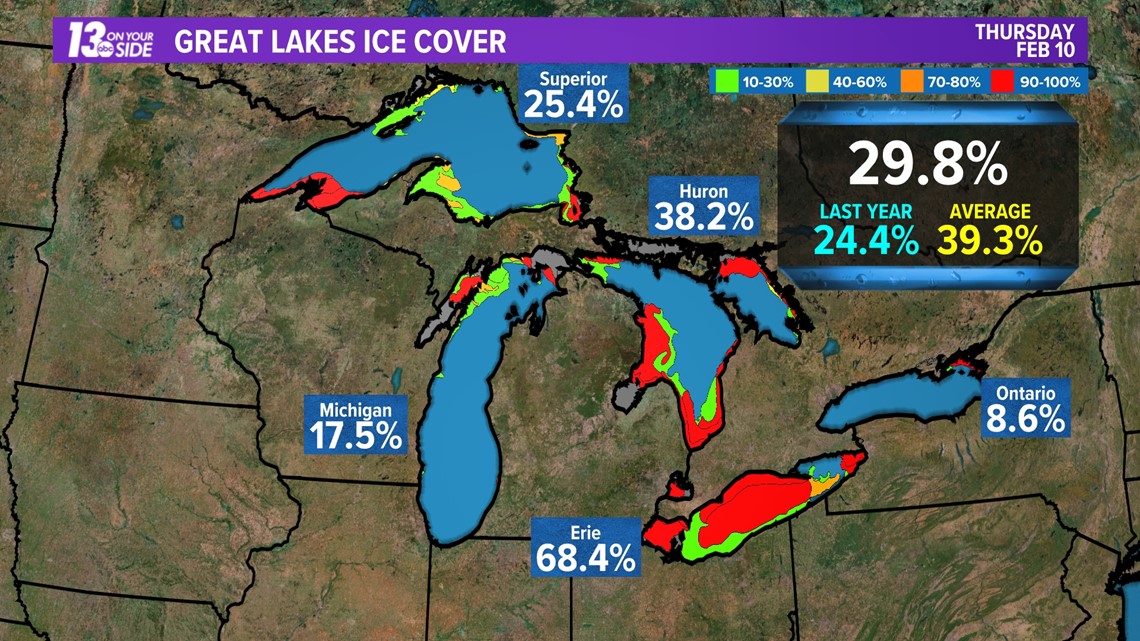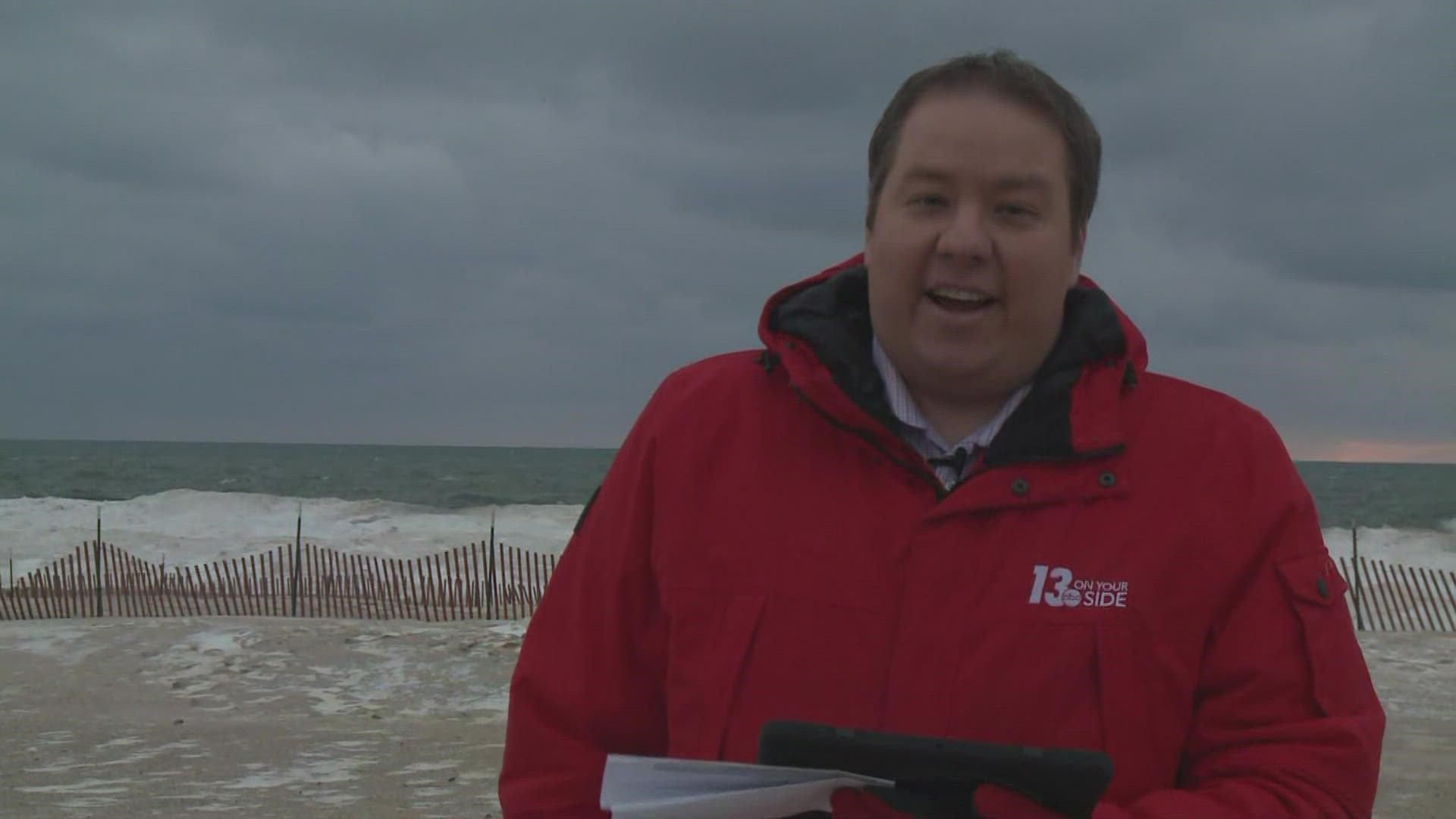GRAND HAVEN, Mich. — February 13 marks the date where we usually see Lake Michigan reach its peak ice coverage for the winter season, but just days away from that date on February 10th, the lake remains well under average ice levels for this time of the year.
Ice levels as of Thursday afternoon were just at 17.5%. Compare this to 17.7% this time last year and to the average level of 27.3%. It's not hard to see that we are not anywhere near the ice levels we should be seeing this time of the year.
The image below shows ice coverage as of Thursday afternoon on Lake Michigan.


While it is not unusual for peak ice coverage to happen late into February or into March, this is the average peak date after all, the time for ice to form on the lake is starting to slip away. Unless we get a late season cold snap, this could be yet another year that adds to the ongoing trend of decreasing levels of ice each winter for Lake Michigan.


I wouldn't hold my breath for this late season freeze however. Temperatures in the open waters of Lake Michigan are still being reported near the 40s and the 8-14 day climate outlook is forecasting warmer than average temperatures for the entirety of the continental U.S.


Expanding this analysis to the entire Great Lakes basin, it is revealed that we are also not heading in a direction to make our average maximum ice coverage. As of Thursday February 10th the basin was at 29.8% coverage. Peak coverage on average happens around February 18th near 43%.


What this means for West Michigan in the short term is that our lake-effect threat could continue through the end of winter and even early spring. It also means we could lose some the calming effects of Lake Michigan on spring and summer storms if the lake continues to stay mild over the next month or two.
It's certainly worth keeping our eyes on.
-- Meteorologist Michael Behrens
Follow me on social media! Facebook Meteorologist Michael Behrens, Twitter @MikeBehrensWX, and Instagram @MikeBehrensWX.
Email me at: MBehrens@13OnYourSide.com
Have a 30-second video or still photo to share? We'd love to share it with everyone! Email your image to Weather@13OnYourSide.com or post it to our 13OnYourSide Facebook Page.
►Make it easy to keep up to date with more stories like this. Download the 13 ON YOUR SIDE app now.
Have a news tip? Email news@13onyourside.com, visit our Facebook page or Twitter. Subscribe to our YouTube channel.

